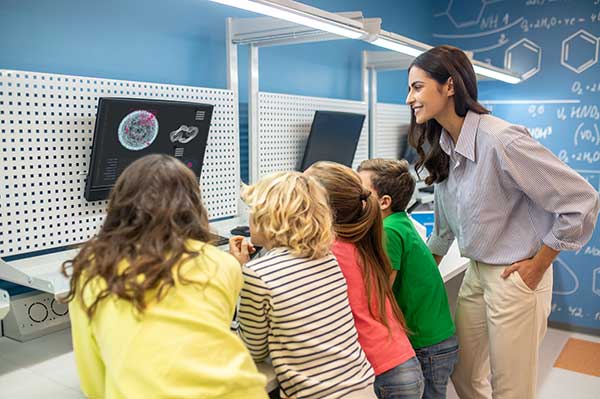Your Path to Progress: Understanding Brazosport ISD School Board

About Brazosport ISD
Mission of Brazosport ISD
The mission of Brazosport Independent School District (BISD) is to graduate each student to be future ready. This commitment emphasizes equipping students with the necessary skills, knowledge, and character to face the challenges of the future successfully. More details on their goals and objectives can be found on the Brazosport ISD website.
Overview of Brazosport ISD
Brazosport ISD was established in 1944 and now serves more than 11,000 students. The district encompasses 16 schools and is situated in 8 municipalities within Brazoria County.
| Statistic | Data |
|---|---|
| Year Established | 1944 |
| Total Students | 11,000+ |
| Number of Schools | 16 |
| Location | Brazoria County |
| Municipalities Served | 8 |
Brazosport ISD offers a diverse range of educational and extracurricular activities aimed at fostering student development. For those interested in becoming certified teachers, exploring career opportunities, or applying for teaching jobs within BISD, it is important to get acquainted with the district’s operations.
For more detailed information, consider exploring their academic programs and extracurricular activities. You can also learn about the student enrollment process and the schools within Brazosport ISD.
Role of School Board Members
Understanding the role of the Brazosport ISD School Board is essential for anyone interested in the functioning and governance of the school district.
Responsibilities of School Board Members
School board members, or trustees, are elected by popular vote in every public school district. They represent the diverse opinions and values of their constituents and do not need prior education experience (We Go Public). Here is an overview of their primary responsibilities:
-
Advocacy: Trustees serve as advocates for public schools, actively promoting the interests of the students and the district.
-
Goal Setting: They are responsible for setting educational goals and priorities that align with the community’s expectations and state standards.
-
Performance Monitoring: School board members consistently monitor the performance of the district to ensure that the goals are being met.
-
Policy Approval: They adopt policies, such as those related to Brazosport ISD academic programs, that guide the district’s operations and strategic direction.
-
Budget Approval: Board members approve budgets, ensuring that financial resources are allocated efficiently.
-
Hiring and Evaluation: Trustees hire and evaluate the superintendent, who is responsible for the daily operations of the district.
-
Community Communication: They facilitate open communication with the community, ensuring that decisions made are in the best interests of all stakeholders.
Decision-Making in School Boards
Decision-making within the Brazosport ISD School Board involves several steps and is primarily conducted during public, open meetings. Here’s what the process looks like:
-
Public Involvement: Meetings are open to parents and community members. This openness encourages stakeholders to voice their concerns, ensuring that the board’s decisions reflect the community’s needs and aspirations.
-
Majority Vote: All significant decisions and policy adoptions are made through a majority vote among the trustees. This ensures democratic governance and prevents unilateral decision-making (We Go Public).
-
Transparency and Accountability: Transparency is maintained through constant communication with the community, and the effectiveness of policies is regularly reviewed to ensure accountability.
| Meetings | Decision-Making Process | Purpose |
|---|---|---|
| Public, Open Meetings | Majority Vote | Create policies in the best interest of students |
By understanding the responsibilities and decision-making processes of the Brazosport ISD School Board, individuals can better comprehend how the board contributes to the success and governance of the district. For those interested in pursuing a career in teaching within Brazosport ISD, knowing about the school board’s role provides insight into the district’s commitment to educational excellence. For more information on specific topics like Brazosport ISD student enrollment and Brazosport ISD extracurricular activities, please explore relevant links.
School Board Elections and Duties
Understanding the process of becoming a school board member and the responsibilities they shoulder is crucial for anyone interested in the educational landscape of Brazosport ISD.
School Board Election Process
The election process for Brazosport ISD school board members, also recognized as trustees, follows a structured protocol. Elections are generally held on the first Saturday in May or the first Tuesday after the first Monday in November (We Go Public). Special elections may be scheduled to fill any vacancies that arise between regular election dates.
Trustees are elected by popular vote within the district. These positions are unpaid, and the individuals who serve dedicate a significant amount of their time to various responsibilities including attending meetings, undergoing training, researching policies, and engaging with community members.
| Election Period | Date |
|---|---|
| Regular Elections | First Saturday in May or First Tuesday after the first Monday in November |
| Special Elections | As needed to fill vacancies |
For those interested in more about academic programs or student enrollment within the district, check out our pages on Brazosport ISD academic programs and Brazosport ISD student enrollment.
Duties of School Board Trustees
School board trustees in Brazosport ISD play a pivotal role in the educational framework, serving as advocates for public education. They represent the diverse opinions and values of their constituencies and are entrusted with numerous key responsibilities (We Go Public).
Key duties include:
- Advocacy: Representing the district’s interests at various levels.
- Policy Making: Adopting and evaluating policies to ensure they meet the state’s educational standards.
- Financial Oversight: Approving the district budget and setting the tax rate.
- Performance Monitoring: Setting educational goals and monitoring the district’s performance against these goals.
- Leadership: Hiring and evaluating the superintendent, the leader of the district’s schools.
- Community Engagement: Communicating with the public to maintain transparency and accountability.
Additionally, school board trustees are required to conduct these activities in public meetings, encouraging parents and community members to attend and voice their opinions (We Go Public). These open forums foster an environment where policies can be crafted in the best interest of all students.
For more nuanced differences between traditional and charter school boards, visit our section on Traditional vs. Charter School Boards.
By delving into the election process and the extensive duties of school board trustees, stakeholders can better understand the commitment and impact of these pivotal roles within Brazosport ISD Texas schools. This knowledge is essential for anyone looking to pursue a career or become more involved in the educational opportunities provided by Brazosport ISD.
Traditional vs. Charter School Boards
Understanding the differences between traditional public school boards and charter school boards can help potential teachers, parents, and community members navigate the educational landscape within Brazosport ISD.
Key Differences
The governance structures of traditional public school boards and charter school boards differ significantly.
| Feature | Traditional Public School Boards | Charter School Boards |
|---|---|---|
| Election of Members | Elected by popular vote (We Go Public) | Typically appointed (We Go Public) |
| Adherence to Standards | Must follow State Board of Education standards | Follow their own charter agreements |
| Accountability to Public | High, through regular open meetings and public participation | Varies, dependent on charter management and agreed guidelines |
| Representation | Represents diverse community opinions | Often created and guided by a specific group or entity |
| Flexibility in Policies | Less flexibility, bounded by state requirements | More flexibility, can tailor policies to fulfill charter goals |
Accountability and Decision-Making
Both types of school boards play crucial roles in the governance of educational institutions, but their approaches to accountability and decision-making are distinct.
Traditional Public School Boards
- Accountability: Traditional school boards are highly accountable to the public. Members are elected through popular vote, fostering transparency in their operations. They hold regular open meetings where community members are encouraged to attend and voice their concerns (We Go Public). This ensures that decisions reflect the will and needs of the community.
- Decision-Making: Decisions are made by majority vote during public meetings. The primary focus is always on creating policies that serve the best interests of all students. The board members also adopt goals, monitor performance, review policies, and approve budgets (We Go Public).
Charter School Boards
- Accountability: Charter school boards are typically less accountable to the public compared to their traditional counterparts. They are appointed rather than elected, which means they are not directly representative of the community’s diverse opinions and values. Their operations depend largely on the specifics outlined in their charters.
- Decision-Making: Charter schools are granted more flexibility in policy-making to innovate educational practices as defined in their charter. However, this can lead to varying degrees of accountability, which is generally dependent on the oversight from charter management organizations and the agreed-upon charter guidelines.
To further understand the roles and responsibilities of school board members in Brazosport ISD, visit our section on School Board Members. For more insights into the educational programs and opportunities in Brazosport ISD, explore our articles on academic programs and extracurricular activities.





